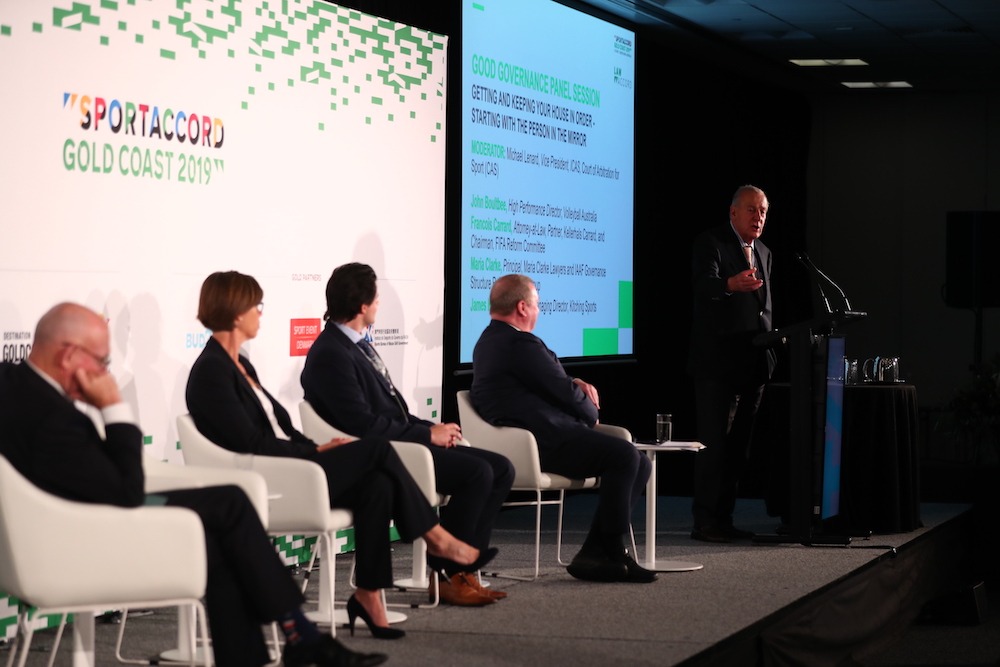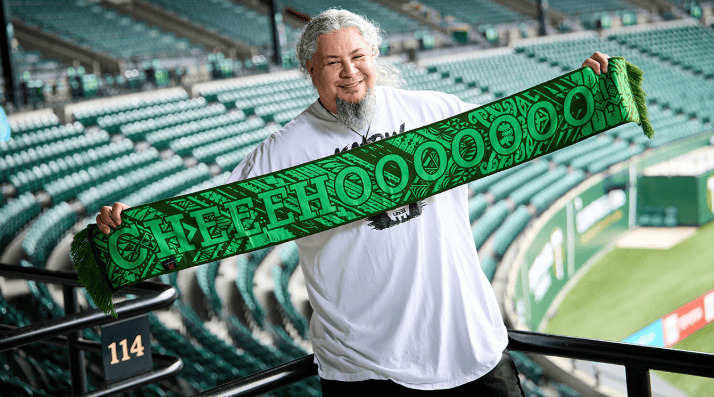Rival Competitions In Sport – SportAccord 2019

The first day of SportAccord 2019, which is taking place all this week on the Gold Coast, focussed on the opportunities, challenges and threats to institutional sport.
A big discussion point for the opening day of the event was the emergence of rival leagues and competitions in elite sport, with a panel consisting of the University of Melbourne director of sports law, Professor Jack Anderson, FIBA secretary general, Andreas Zagklis, Suiko Consulting managing director, Eugenie Buckley, Gilbert + Tobin partner, Moya Dodd, and another sports law expert from the AFL Players Association.
Professor Anderson said there are a lot of factors that can lead to the creation of rival competitions, including pressure from within a given sport when funding for grassroots programs become a ‘commercial drag’ for established clubs, or when athletes feel disaffected by a perceived lack of leadership.
“To be very blunt, it’s about money and control, and it’s always been that way,” Professor Anderson said.
“When you come to rival leagues and competitions, it’s also adaptations of traditional forms of the game.
“That’s a hugely important point for all the big sports bodies now.
“You’re dealing with digitally native people who have fewer attention spans, who can access information quicker, they want shorter, faster types of games.
“They’re benefiting from private equity from gambling sources, from technology sources, from streaming sources, and changing the way we play and consume our games,” he said.
Mr Zagklis said FIBA has traditionally taken an open and collaborative stance to new players in international basketball, seeing them as a growth opportunity and choosing to work with those entities rather than seeking to limit their influence.
“This was the vision of my predecessor Patrick Baumann, to take a sport from the streets to the Olympics in just ten years,” he said, talking about FIBA’s work with developing 3×3 basketball, which is set to be completed at the Tokyo 2020 Olympic Games.
“80 per cent of our events are run by promoters, by private entities who are ready to invest and put their money and risk in places, and in times when our own member federations are not in such a position.
“I think this is the answer: don’t be afraid.
“Attract investment, go in and compete, and carefully draw the lines to what you want to control and what you can delegate or license outside,” Mr Zagklis said.
Latest News



What's Next
It's free to join the team!
Join the most engaged community in the Sports Business World.
Get all the latest news, insights, data, education and event updates.



